How to retire in Ireland a complete guide to moving here
Retiring abroad is a dream for many, and Ireland is a country that offers a really wonderful retirement destination. With its rich history, stunning landscapes, and vibrant culture, Ireland is an ideal destination for those seeking a slower pace of life in their golden years. But what does it take to retire to Ireland? In this article, I will explore the process of retiring to Ireland from my personal experience of helping friends to retire here.
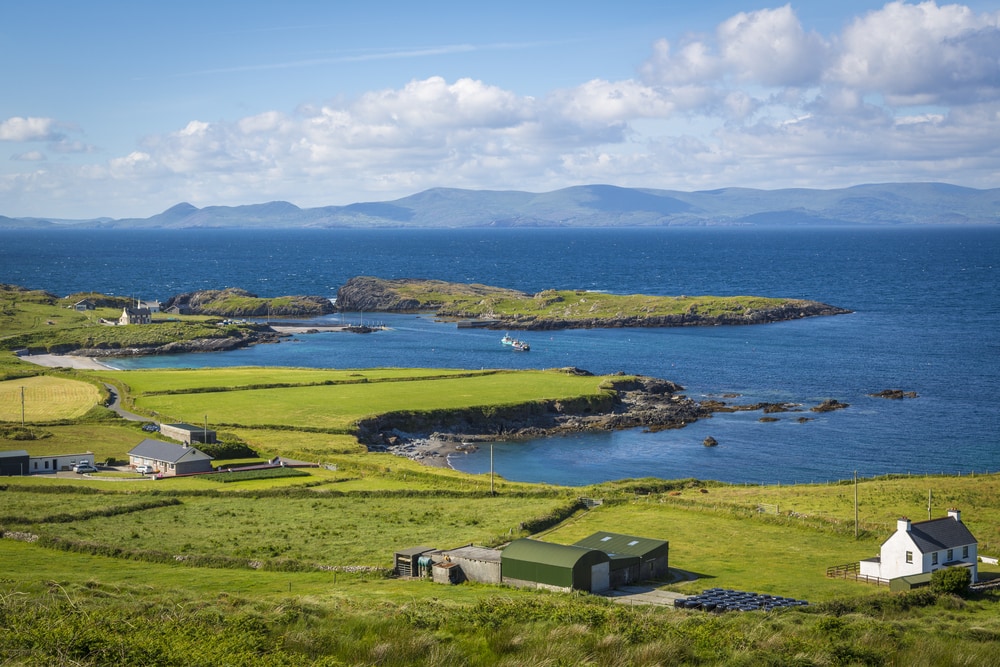
My husband and I retired to Ireland but we were very lucky in that we could claim Irish by birth and Irish by Irish citizen parents. We can also pass down to our children Irish citizenship if they want it. This means we can stay in Ireland as long as we like.
One of the first things to consider when planning your retirement in Ireland is the legal requirements. Non-European Union (EU) citizens will need to apply for a long-term visa or residency permit to legally reside in the country for an extended period. This process can be quite complex, so it’s advisable to seek the assistance of an immigration lawyer or consultant to ensure all the necessary paperwork is in order.
If you want to retire in Ireland financial planning is another crucial aspect to consider before retiring to Ireland. While the cost of living in Ireland can be higher compared to other countries, there are various economic benefits for retirees. For instance, pension income from certain countries may be tax-exempt in Ireland under the Double Taxation Agreement. Additionally, retirees may be eligible for various social welfare entitlements and healthcare benefits.

When it comes to finding a place to live, Ireland offers a range of options to suit different preferences. From bustling cities like Dublin, Galway and Cork to quaint coastal villages, the Wild Atlantic Way and the epic Ancient East. Not to mention stunning countryside like we see everyday in Donegal and all the beautiful Irish Villages to stay in.
Retiring to Ireland can be an exciting and fulfilling chapter in your life. By following the steps outlined in this article, you’ll be well on your way to making your Irish retirement dream a reality.
- How to retire in Ireland a complete guide to moving here
- FAQs and Questions about retiring in Ireland
- 1. What is a retirement visa and how can I apply for one in Ireland?
- 2. Can I retire to Ireland if I am not an Irish citizen?
- 3. What are the steps involved in moving to Ireland for retirement?
- 4. Are there specific visa requirements for retirees wishing to retire in Ireland?
- 5. Can I retire in Ireland without a retirement visa?
- Retirement in Ireland
- Residency Rights for those wanting to retire to Ireland
- Retire in Ireland as an American or from outside the EU
- Retiring and moving to Ireland from the USA or Canada
- American Citizens and Income Tax issues in Ireland
- How to apply for an Irish Retirement Visa
- What is a D Reside Visa
- How to get an Irish passport and claim Irish Citizenship
- Born outside Ireland
- Claiming Irish citizenship
- Citizenship through descent from Irish grandparents
- Obtaining healthcare in Ireland as a retiree – the public health services in Ireland
- FAQs and Questions about retiring in Ireland
FAQs and Questions about retiring in Ireland
1. What is a retirement visa and how can I apply for one in Ireland?
A retirement visa is a type of visa that allows individuals to retire in Ireland. To apply for a retirement visa, you need to fulfill the visa requirements set by the Irish government. Contact the Irish embassy or consulate for detailed information on the process.
2. Can I retire to Ireland if I am not an Irish citizen?
Yes, you can retire to Ireland even if you are not an Irish citizen. However, you may need to apply for an Irish visa or meet certain visa requirements to reside in Ireland as a retiree.
3. What are the steps involved in moving to Ireland for retirement?
If you want to retire and live in Ireland, you will need to apply for a visa based on your retirement plans. Ensure you are ordinarily resident in Ireland and comply with the visa requirements for retiring in Ireland.
4. Are there specific visa requirements for retirees wishing to retire in Ireland?
Yes, there are specific visa requirements for individuals who wish to retire or work in Ireland. Contact the relevant authorities to understand the requirements for the Irish retirement visa or residency permits.
5. Can I retire in Ireland without a retirement visa?
In most cases, individuals need a visa to enter Ireland for retirement purposes. Ensure you have the necessary visa to enter Ireland to avoid any legal complications during your stay.
Retirement in Ireland
If you were born on the island of Ireland – Northern or Republic
The island of Ireland is comprised of 2 parts, the North which is part of the U.K and Ireland which is an independent republic. If you want to move to Ireland you need to understand a little about the country itself and if you have Irish ancestry how you can move to Ireland.

If you were born anywhere on the island of Ireland you are entitled to Irish citizenship – even if you were born in Northern Ireland (UK). You can obtain your Irish passport and retire to Ireland through this citizenship even if you want to live in the Republic of Ireland.
Retire to Ireland – citizenship by descent
If you have Irish-born parents or grandparents you can apply for an Irish passport for citizenship via descent. You must have proof of that citizenship with either their birth certificates or registration with the Foreign Births Department.
Retire to Ireland from USA – via descent through great-grandparents
Contact the Department of Foreign Affairs and Trade if you have any questions about citizenship based on descent from your great-grandparents. Currently, it can take up to 1 year to have your birth registered and become an Irish citizen.
To become an Irish citizen, your great-grandparent’s grandchild (ie your parent) who is of Irish descent must have been registered in the Foreign Births Register between the years 1956 and 1986, or if you were born after 1986 they registered before you were born.
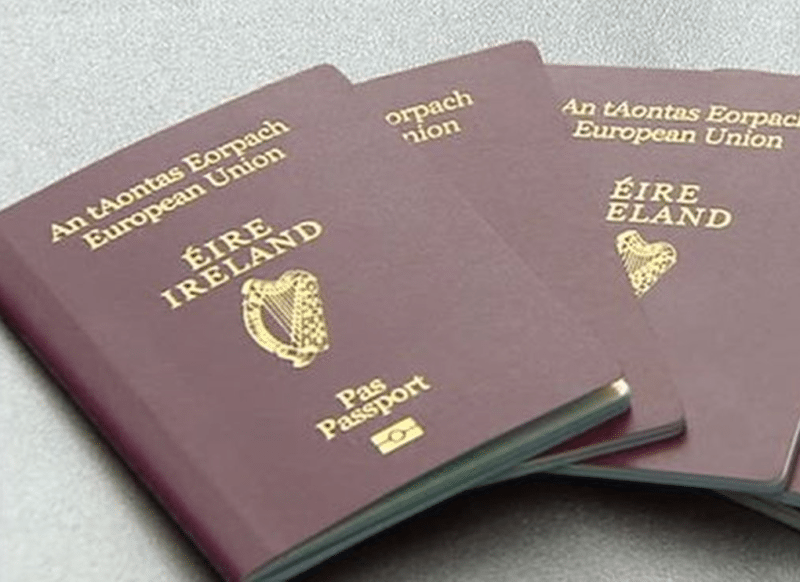
To become an Irish citizen, contact the Department of Foreign Affairs and Trade to check if your parent of Irish descent (ie your great-grandparent’s grandchild) is registered in the Foreign Births Register.
If they are registered, you can apply to register yourself. When or if you are registered, you become an Irish citizen on the date of registration. You can then apply for an Irish passport.
If you are thinking of retiring to Ireland or even just visiting a brilliant way to see the Island on a budget is to backpack and visit all the interesting corners of the country. This Backpacking Ireland Travel Guide is all the information you will need to get the most out of the country on a budget.
Residency Rights for those wanting to retire to Ireland
Can I retire to Ireland from UK?
UK citizens also have the right to move to Ireland without any conditions or restrictions. If you were born in the North of Ireland or your parents were you have automatic rights to reside in Ireland. If you were born outside of Ireland but your parents were born in Ireland again you have the right to live in or move to Ireland.
If you were born in Ireland, the UK or in the EEA (The European Economic Area) which comprises the member states of the European Union, Iceland, Liechtenstein and Norway) you have some claim on residency rights in Ireland. For example, if you were born in Northern Ireland (officially the UK) you have automatic rights to live in or move to Ireland.
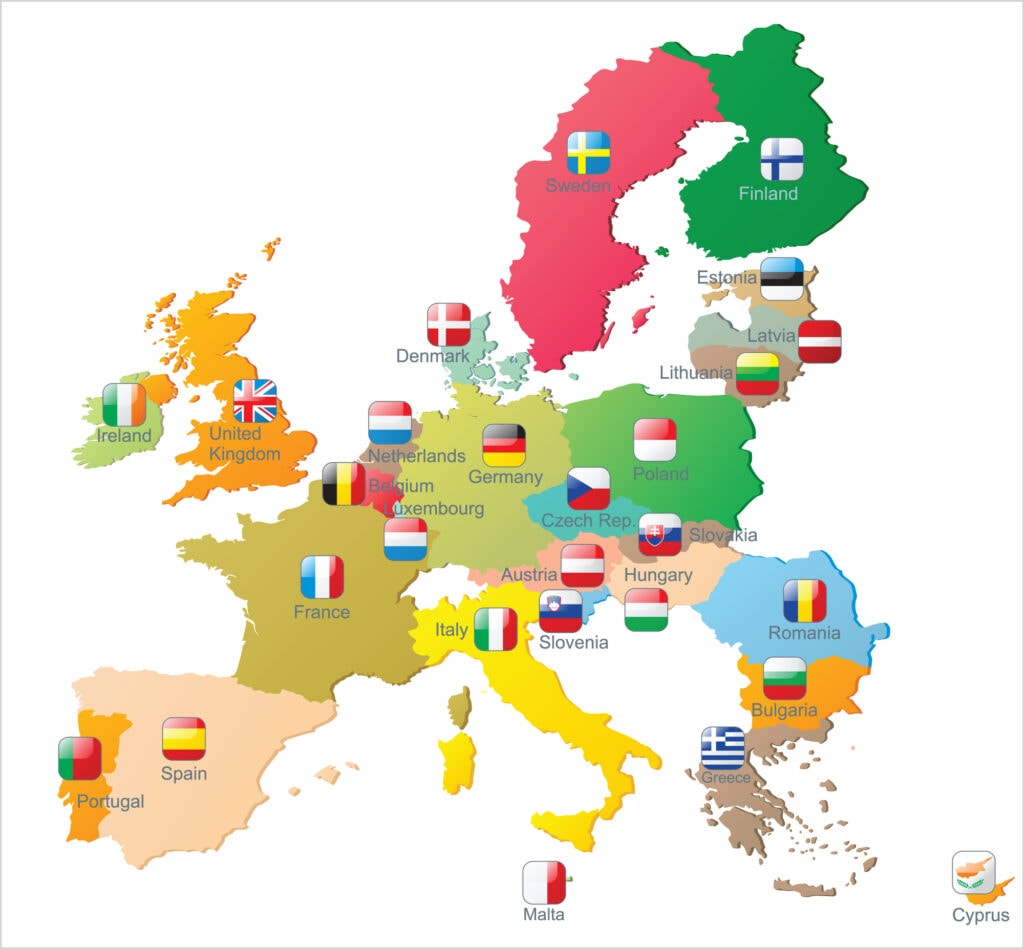
What does the EEA refer to? The European Economic Area, abbreviated as EEA, consists of the Member States of the European Union (EU) and three countries of the European Free Trade Association (EFTA) (Iceland, Liechtenstein and Norway; excluding Switzerland).
EEA and Swiss nationals can move to Ireland with their family members but there are some limits. EEA and Swiss nationals and their families can remain in Ireland for up to 3 months without restriction. If you are retired and plan to stay for more than 3 months, you must have sufficient resources and health insurance, or you must be employed or self-employed. If you are considering moving for retirement check out these top self-employed jobs.
Non-EEA nationals: citizens of certain non-EEA countries must apply for an entry visa before they travel to Ireland. You can find out if you need a visa to enter Ireland you can find out at the Citizen’s Advice Bureau. When you have arrived in Ireland, if you are not an EEA or Swiss national, you must have permission to remain if you wish to stay for more than 3 months. So for example, if you are a Canadian or US citizen you can stay in the country for 3 months (90 days) without a Visa.
Retire in Ireland as an American or from outside the EU
Getting a work permit to move to Ireland
Non-EEA nationals can become employed in Ireland and apply to stay but certain conditions of employment must be met. There are certain employment areas or skilled labour that are required in Ireland and you can obtain a residency permit if these requirements can be met you can find more information here. So for example, if you are an engineer, doctor, scientist and so on you can probably find work and obtain a residency permit. You must checked the Skilled Labour list and obtain a conditional letter of offer from an employer to obtain a work permit.
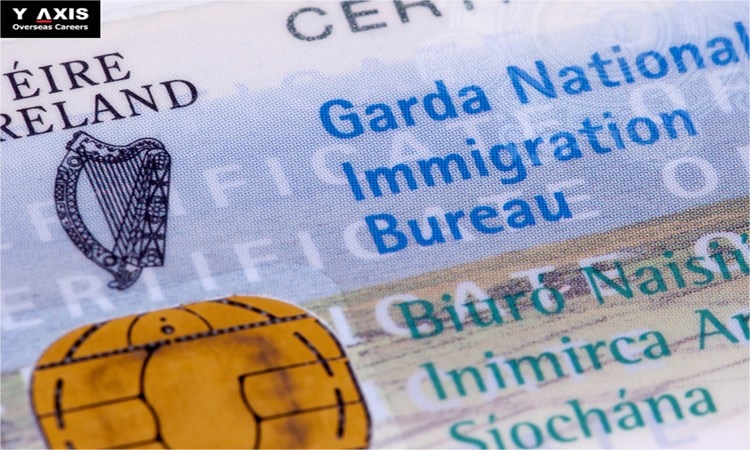
Retiring and moving to Ireland from the USA or Canada
Requirements for the Irish Retirement
How to get a retirement visa Ireland? The Ireland retirement Visa is dependent on your income and savings. if you are retired and have a pension and financial resources you can move to Ireland as a retiree.
What are the financial requirements and how much money do I need to retire in Ireland? The financial threshold is around €50,000 per person per year, but you must also prove you have access to a lump sum of money to cover unforeseen expenses. This should be the equivalent of the price of purchasing a house in the U.S or around $250,000. In addition, you have to register with the local immigration officer following your arrival.
You won’t be eligible, obviously for any benefits in Ireland and you will have to ensure you have private healthcare coverage, healthcare in Ireland is not free and the average doctor’s visit will be around €50 Euros.
Keep in mind that rentals and property purchases in Dublin are expensive and are very similar to major N. American cities. Rural areas like Donegal and Tipperary, for example, are much cheaper and you will get way more for your money. Rentals are also cheaper in rural areas as well. As Canadians, we have found the cost of utilities, heat and food to be if not on par with N. America in some cases they are considerably cheaper than in Canada.
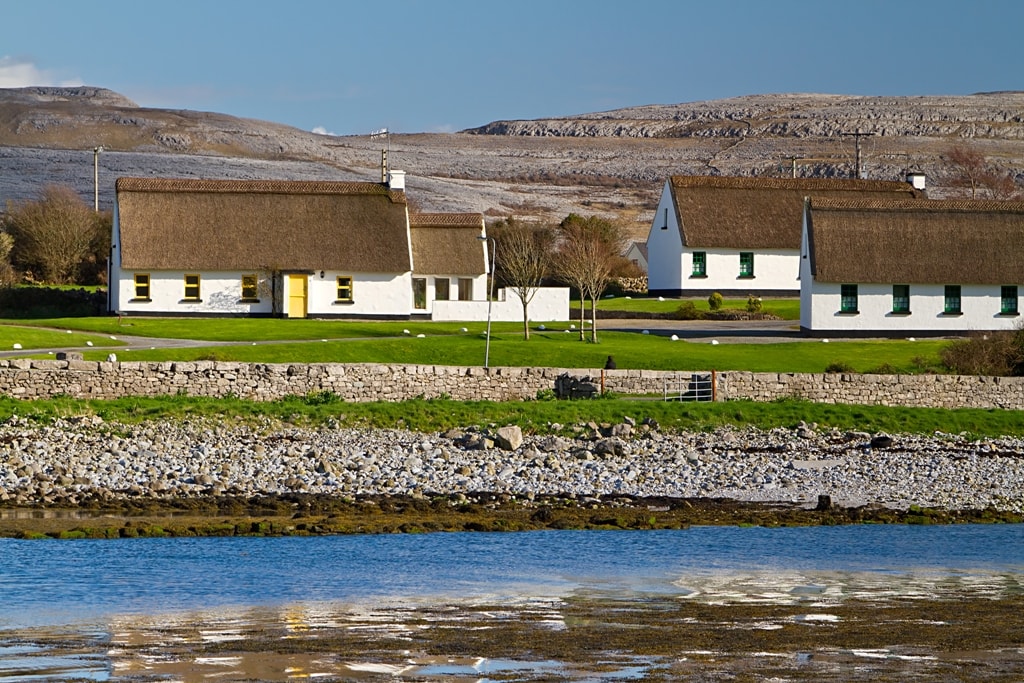
If you are a student who wishes to study in Ireland you must prove you are enrolled in a recognized program and that you have sufficient funds to support yourself while you are in the country. This is around €7000 per year of study. You can work while you are a student but it must be in a “casual” labour-type position of around 20 hours per week.
American Citizens and Income Tax issues in Ireland
If you are planning to retire to Ireland one of the essential aspects of being an American citizen is dealing with taxation issues. The obligations of American citizens to report their income and pay taxes extend even if they live and work abroad, adding an additional layer of complexity to the taxation system. This often leads to a need for professional assistance from tax accountants or attorneys, another expense that citizens have to account for.
Ireland USA Tax Treaty
The convention between Ireland and the United States (US) covers inheritance tax in Ireland and federal estate taxes in the US. It does not apply to gift tax. Neither does it apply to any taxes in the nature of death duties, which may be imposed by US states.

How to apply for an Irish Retirement Visa
To apply for a visa in Ireland, you need to follow a specific process. Firstly, determine the type of visa you require based on your purpose of visit, such as tourism, work, study, or family reunion. Next, gather the necessary documents for your application, including a valid passport, completed application form, passport-sized photographs, and any additional supporting documents.
You may also need to provide proof of sufficient funds, travel insurance, private health insurance or a letter of invitation if applicable. Once you have all the required documents, book an appointment at your nearest Irish embassy, consulate, or visa application center. During the appointment, submit your application and pay the applicable fee.
It is important to remember that processing times and fees may vary depending on your nationality and visa type. After submitting your application, you can track its progress online. If approved, collect your visa and start planning your trip to Ireland. Make sure to adhere to the visa validity and abide by the rules and regulations during your stay in the country.

What is a D Reside Visa
A Long Stay ‘D’ Visa grants successful applicants over 90 days to remain in Ireland, whether that be to work, study or to join and settle with existing family members in the country. You can apply for any Visa through the Department of Foreign Affairs.
How to get an Irish passport and claim Irish Citizenship
The following information details how to claim Irish citizenship through birth or ancestors.
Born in Ireland
If you were born on the island of Ireland before 1 January 2005, you are entitled to be an Irish citizen.
Irish citizen parents
If you were born in Ireland after 1 January 2005 and your parent(s) were Irish citizens, then you are also an Irish citizen.
Foreign national parents
A child born on the island of Ireland on or after 1 January 2005 is entitled to Irish citizenship if they have a British parent or a parent who is entitled to live in Northern Ireland or the Irish State without restriction on their residency. A child born in Ireland to a parent who has been granted refugee status is also automatically entitled to Irish citizenship.
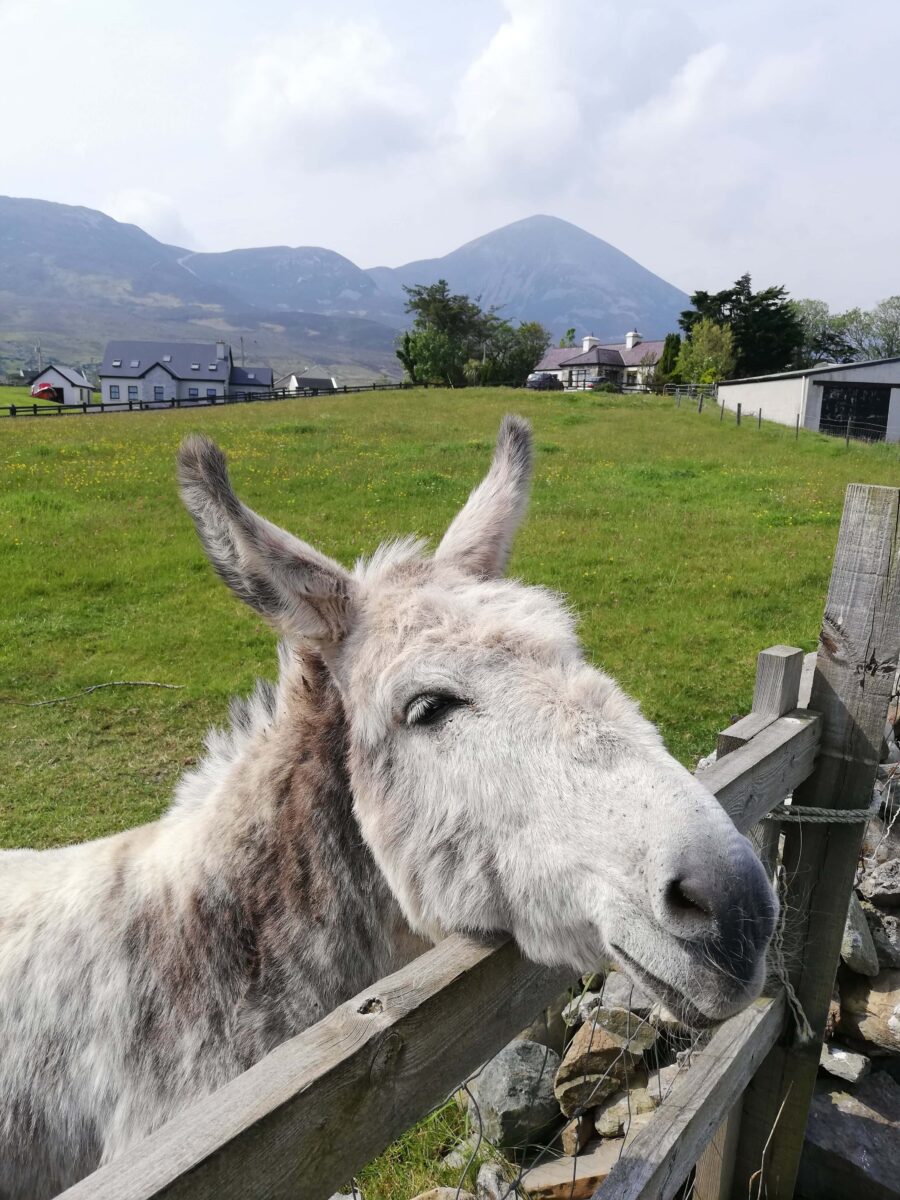
Born outside Ireland
Irish citizen parents born in Ireland
If either of your parents was an Irish citizen who was born in Ireland, then you are automatically an Irish citizen, irrespective of your place of birth. If you are an Irish citizen, you can apply for an Irish passport. You do not need an Irish passport in order to be an Irish citizen but having an Irish passport is evidence that you are an Irish citizen.
Irish citizen parents born outside Ireland
If you were born outside Ireland to an Irish citizen who was born outside Ireland, then you are entitled to become an Irish citizen, gain your Irish passport and retire to Ireland very easily.
If your parent or parents have Irish citizenship in another way, for example, through marriage, adoption or naturalisation, and was an Irish citizen at the time of your birth, you can become an Irish citizen.
Claiming Irish citizenship
Before you can claim Irish citizenship, you must have your birth registered in the Foreign Births Register.* If you are entitled to register, your Irish citizenship is effective from the date of registration – not from the date when you were born.
Citizenship through descent from Irish grandparents
If one of your grandparents is an Irish citizen who was born in Ireland, but neither of your parents was born in Ireland, you may become an Irish citizen. You will need to have your birth registered in the Foreign Births Register.
The following table may help to explain the situation:
| If you are: | Then you are: | |
| A | Born in the island of Ireland on or before 31 December 2004 | Entitled to Irish citizenship or you are an Irish citizen |
| B | Born on the island of Ireland on or after 1 January 2005 | Entitled to Irish citizenship if one or both of your parents: *Is Irish or British or entitled to live in Northern Ireland or the Irish State without restriction on their residency – or is a foreign national legally resident in the island of Ireland for 3 out of 4 years immediately prior to your birth – or as been granted refugee status in Ireland |
| C | Child of A, born outside the island of Ireland | An Irish citizen |
| D | Child of C and a grandchild of A, born outside the island of Ireland | Entitled to Irish citizenship, but you must first register in the Foreign Births Register |
| E | a child of D and a great-grandchild of A, born outside the island of Ireland | Entitled to Irish citizenship, by having your birth registered in the Foreign Births Register, but only if your parent D had registered by the time of your birth. |

Obtaining healthcare in Ireland as a retiree – the public health services in Ireland
Obtaining healthcare in Ireland as a retiree is relatively straightforward, thanks to the country’s comprehensive medical system. As a retiree, you are entitled to receive healthcare through the public health service, known as the Health Service Executive (HSE).
All individuals who have their usual residence in Ireland and certain individuals visiting Ireland have the right to avail a variety of public health services without charge or at a lower expense. You are considered as having your usual residence if you have been residing in Ireland for a minimum of one year or if you plan to reside in Ireland for a minimum of one year.
Everyone ordinarily resident in Ireland and certain visitors to Ireland are entitled to a range of public health services either free of charge or at reduced cost. You are ordinarily resident if you have been living in Ireland for at least a year or you intend to live here for at least one year.
The GMS card covers general practitioner visits, hospital stays, and prescription medications at no cost or at a reduced rate. You can apply for the GMS card if you meet certain criteria, including being over the age of 66 and residing permanently in Ireland. However, if you do not qualify for a GMS card, you can still apply for a Medical Card, which provides a range of healthcare services at a reduced cost.
Private Medical Insurance
It is also worth considering private health insurance if you want access to additional services or faster treatment options. Many retirees choose to have private health insurance to supplement their public healthcare coverage. Overall, Ireland’s healthcare system ensures that retirees have access to essential medical services without facing excessive financial burdens. Whether through the public or private sector, retirees can feel secure knowing they can receive the necessary care to maintain their health and well-being.
If you live abroad but are an Irish citizen retiring to Ireland you can return at any time. You may have to arrange for any pensionable benefits to be transferred from where you worked to Ireland and of course obtain all the necessary social security documents.
Ireland has long been revered for its stunning landscapes, rich history, and vibrant culture. With its friendly locals, lively pubs, and picturesque countryside, it’s no wonder that many retirees dream of spending their golden years in the Emerald Isle. But retiring to Ireland is not merely a fantasy; it’s an achievable goal for many individuals seeking a peaceful and fulfilling retirement.
Retiring to Ireland can be a transformative and enriching experience. By carefully considering your financial situation, healthcare needs, and preferred lifestyle, you can embark on a fulfilling retirement journey in this beautiful and captivating country. For more information you can check out Ireland’s Citizen’s Information.
You might also like
53 Ultimate tips for travel to Ireland Céad Míle Fáilte
My Move to Europe – 21 personal stories
International Housesitting & how to get house sitting jobs
How do I get an EU Passport and EU Citizenship?
Move to the UK as a Canadian or American
Pin it to save it


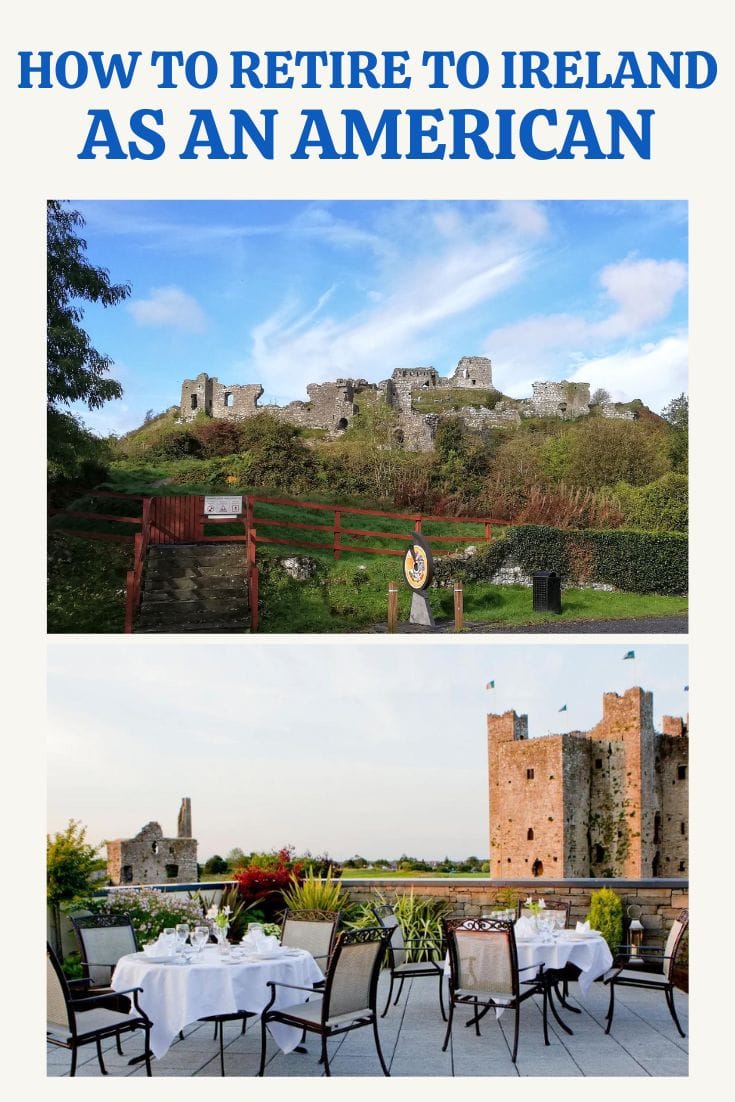
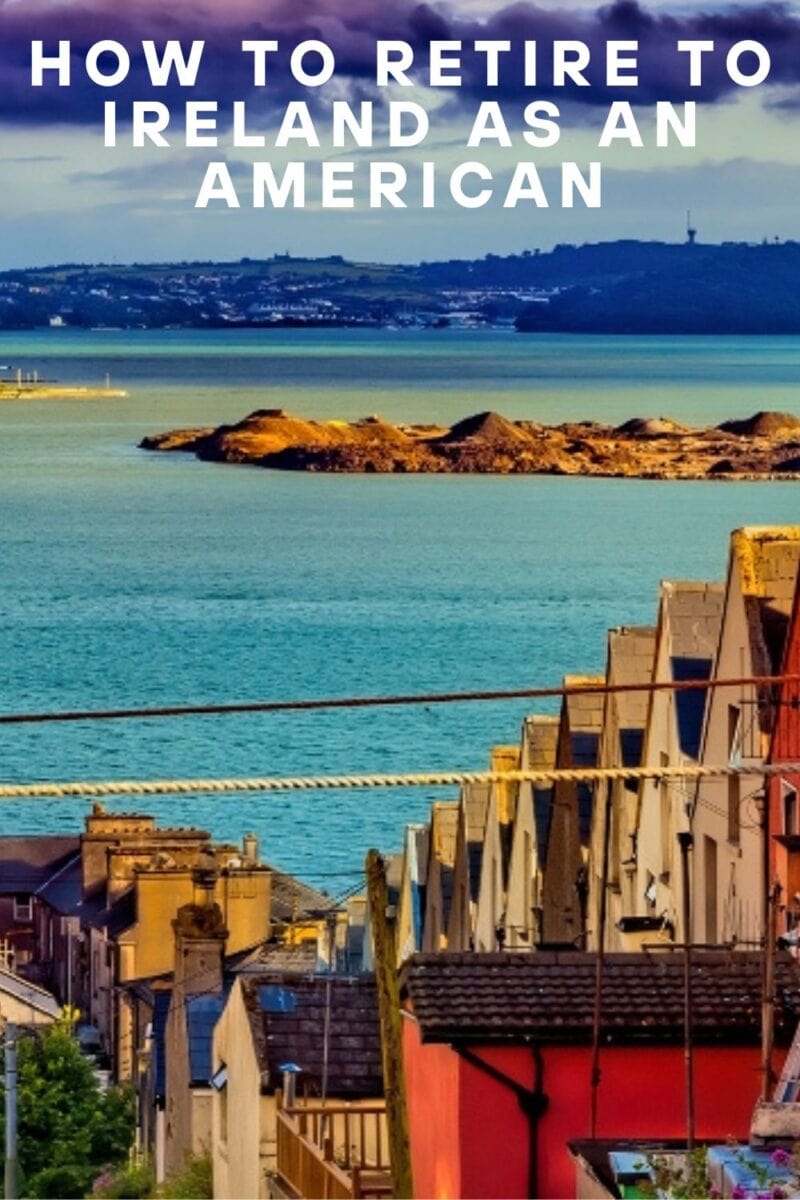
I moved to Ireland on a working visa when I was 22. Best time ever! I loved the country and have been back multiple times to visit my friends. I think its a great place to move abroad, especially for solo travellers or someone who hasn’t done it before.
I’ve always wanted to visit Ireland. it sounds like a very peaceful country.
I’ve heard so many great things about Ireland. It is definitely a place I love to visit one day. Thanks for sharing this detailed information. Helpful info!
I love things Irish! I hope to at least visit one day.
Hi Kathryn,
I have am current U.S, citizen but also have an Irish passport; my father was born in Clare.
I am interested in retiring to Ireland with my partner, who does not have an Irish passport. Do you have any advice for us, or can you direct me to further information? Thank you.
Yes you can get a spouse visa for your partner check here for more information http://www.inis.gov.ie/en/INIS/Pages/visa-long-family-other
I’ve traveled to Ireland twice. My plan is to retire in Ireland. I am 19% Irish but I feel as if it’s my true place to be. You know? I feel it in my heart!
Yep I do know and we are seriously considering for our retirement – in fact I think we are decided we just have to decide when to retire…lol
My husband and I are US Citizens who meet the income qualifications to retire in Norway in May or June of 2022. We are over seventy years old. We plan to do long-term rental and not purchase in a rural, less expensive area. We are interested in discerning the best location that would provide hiking, waterscape, plus not having too far to the markets. We write and need good wi-fi
I would strongly suggest joining some Norwegian expat groups on Facebook that way you will be able to have your questions answered by people who live there now. Here are a couple that are pretty good https://www.facebook.com/groups/norwayexpats/ https://www.facebook.com/lifeinnorway
I have talked about living in Ireland for years. I was always told that my heritage is Dutch-Irish while growing up and got serious and started working on my family tree. I have the marriage certificate from my great-grandparents that say they are from Ireland. I did the ancestry DNA test and it says I’m 34% Scandinavian and 25% Ireland, 17% Europe West, 13% Iberian Peninsula with smaller amounts from Great Britain, etc. I have always said 6 months to a year would be the best time frame to get to know the people and culture. I wish my lineage directly from Ireland wasn’t so far back as my great-grandparents so I could have a chance at becoming an Irish citizen. Oh well, I hope to visit there someday at least.
What about the Dutch side Misti? Or perhaps another EU country where some grandparents came from – if you can find a country you can apply for an EU passport from that country and still live and work in Ireland.
Here is an update on the Stamp 0 process of retiring to Ireland. Just a draft proposal at this point but I think it is soon to be finalized in more or less the same form.
https://www.justice.ie/en/JELR/Public_Consultation_Sept_2016_-_Non-EEA_Retirees.pdf/Files/Public_Consultation_Sept_2016_-_Non-EEA_Retirees.pdf
Hi!
I don´t remember if they are really good, because I was a child when I watched them, but what about Darby O´Gill and the Little People and The Fighting Prince of Donegal (not filmed in Ireland, it´s true).
Thanks a lot.
A Tenerife young lady in love with Ireland.
They are good films but unfortunately they were not filmed in Ireland. Darby O’Gill was filmed entirely in California and the Prince was filmed in the UK. The list was specifically for films made in Ireland so that folks would find places in the movies that they could visit or had visited.
Not clear what the actual requirements/process is for someone that is retiring to Ireland with adequate financial resources to cover every eventuality and seeks to buy a home and stay forever.
Not working.
Not a student.
No Irish ancestry.
Need a layout of the complete process, START TO FINISH, moving from the US to Ireland,permanently.
Just independently wealthy and wanting to buy a house, live and die in Ireland.
I’m 26% Irish. I’m a Thompson from Tennessee . My goal is to at least visit someday. I love all things Irish. I don’t think I have a chance at retiring there. Although my husband and I together should have about $60,000 in retirement.
My great grand Parents came from Donegal and Mayo. We are retired, my husband is not Irish. Could wemove there? Realise we could not become citizens .
Yes, you could move here but you would have to have a minimum amount of money. The financial threshold is around €50,000 per person per year, but you must also prove you have access to a lump sum of money to cover unforeseen expenses. This should be the equivalent to the price of purchasing a house in the U.S or around $250,000.
I live in the US and plan on retiring in 12 years, not that I’m counting!! My father was born in Ireland, and I have my Irish passport. Do I just show up and say, hello I’m here? Are there any other steps necessary? In the US we have a social security number. Is there an equivalent in Ireland that I would need?
LOL that does give you Irish citizenship and there are a few things you need to do when you arrive. If you plan to retire here and not work they say you don’t need a PPS card (like a SS # or card) but you do – so that is the first thing that you will need. Well besides an address that is. If you stay tuned to the website and keep in touch I am in the process of putting together a post on how we moved to Ireland and all the stuff we had to sort out and learn when we got here.
We are Canadians and interested in retiring to Ireland . We would like to hear from anyone , particularly Canadians that have already retired to Ireland.
Awesome happy to help will email you and we can chat
I am Canadian with Irish passport and want to look into retiring in Ireland . Interested in health care and taxation and how that will affect me. I own an ancestral home in Kerry
Hi Catherine this article is specifically for Canadians with an IRISH passport https://xyuandbeyond.com/moving-to-ireland-the-ultimate-guide/ who want to move to Ireland it details all the stuff you will come up against. Healthcare, driving licenses, working and so on. Hopefully it will help and feel free to email me at [email protected] if you have any questions.
We are simple livers — would like a small cottage in the rural west, are in good health, and would grow much of our food. Is the retirement income requirement hard and fast? We’d have about $50k yearly and $400k for emergencies. Thank you.
Yes, I’m afraid it is hard very hard to retire to Ireland. You have to have a minimum of 50K each person and then the 250K all in euros of course for a minimum of 5 years before you can apply for citizenship. So if you only have 50K a year coming in for two of you – then you would need to have at least 500k in the bank as “emergency” money which would give you that requirement. So 100K income a year and then the 250K savings. Unless you can prove EU ancestry and obtain an EU passport and then those requirements don’t matter.
My husband and I will have $1.4 million saved but only $36,000 per year in income when we retire. (That income increases to $60,000 per year after age 62) According to the current rules, we can only stay in Ireland for 6 months out of the year even though we want to live there for only 5 years. There is no path currently in the rules for us stay longer than 6 months and enjoy everything Irish. The proposed changes of 2016 would allow us to do so. What is the status on any upcoming legislation or is there something we’re missing in the current rules?
Hi Rhonda, well as you know the requirements to retire to Ireland and for the first 5 years before you can claim residency are as follows:
An annual income of equal to €50,000 per person – so over 5 years that would be the equivalent of €500,000 euros
Savings equal to the cost of buying a home in Ireland – an additional €250,000 in the bank to purchase a home (note here you don’t have to purchase one, you can rent for 5 years)
Comprehensive private Irish-based medical insurance – for both of you
It seems to me that your argument would be that with your savings you obviously have that as you would need to prove a minimum of €100,000 a year for 5 years plus the 250k to purchase a property. You easily have that with your savings and income per year from pensions. Housing prices can be expensive here if you plan on buying in a bigger city, but if you plan to spend your time in a more “rural” setting or smaller town the price can be substantially lower.
I think you should contact your local Irish consulate and speak with them, if you can prove your savings and income it seems to me that you should be able to access the required visa.
My wife is Irish, born in Ireland and she has an Irish Passport. What are the requirements for us to retire to Ireland ? I was born in Canada and we are both US citizens , currently living and running a business in the US.
You should have no trouble at all with your wife being Irish. It’s a pretty easy process simply contact the local Irish Consulate near you and have your wife apply for a Visa for you. You won’t have to meet any monetary criteria if you are retired and have a pension, unlike those who have no Irish connections or ancestry. Here is a link to the requirements. https://www.inis.gov.ie/en/INIS/Pages/spouse-or-civil-partner-of-an-irish-national
I don’t understand even EU citizens have to have around €50,000 per person per year and €250.000 in savings? I thought the whole idea of EU was to make free movement between countries.
No EU citizens do not need that type of income due to the freedom of movement between EU countries. Only those outside the EU have those financial requirements, as in Americans, Canadians, Australians and so on.
My wife & I are considering the possibility of retiring in Ireland, or at least 6 months out of the year. we both have great grandparents born in Germany and she has great grandparents born in Ireland and the UK. Our total (non-taxable) income is $78,024 a year. My medical is covered totally by the V.A. and hers by medicare. What are our chances or what would we have to do?
Hi Edward, the difficulty is that if you wanted to stay longer you would need to apply for a Long Stay Visa which would mean proving that you have the required income. You could stay in Ireland up to 90 days at a time but only within a 180 day period. This would mean living here for 3 months going back to the US or some other non EU country for 90 days and then returning to Ireland. You would need 50K each and 250K in the bank as a “safety net” of sorts.
As a German, In essence, you can reclaim your German citizenship by descent if:
You have ancestors who had their citizenship taken away under Nazi rule on political, racial or religious grounds in 1938.
You have ancestors who were born on Germany territory before 1914, have held German passports in the past or were employed by the German government before 1949.
I applied for and expect to received Irish citizenship due to both of my grandparents being born in Ireland. What I am interested in knowing is, if my wife and I retire in Ireland from the US, what are the tax consequences of my US social security and 401K payments. An example might be $30k/year from SS and $40k/year from 401K, total annual income of $70k
Hi Kevin, you are required by law I believe to pay your taxes in the US so any of your tax responsibilities will come from there. If you don’t work in Ireland you don’t have to pay taxes. There are various complicated laws around taxes because of being a US citizen and you can read some here https://www.greenbacktaxservices.com/blog/expat-taxes-for-americans-in-ireland/ hopefully this will help a little.
My husband and I are US citizens, and had hoped to move to Ireland after I retire from teaching in 2026 (my husband is already retired). We did lots of research a few years ago, but are now realizing the rules changed with Stamp 0. We would both have our teacher pensions, and we would have income from a 401K. We have a young son who will be 14 in 2026, so he would need to finish secondary school. My questions are: if we can manage to meet the financial threshold to obtain a Stamp 0, would we be able to bring our son with us, and would our son be able to attend secondary school in Ireland?
Hi Jennifer under a Stamp 0 the law says this “I am not permitted to have a family member join me on the basis that I am resident in the
State”. There may be a way to get your son a Visa but that would have to be a question for the consulate as special circumstances may apply given his age. I would contact the nearest consulate and inquire with them. Sorry I can’t be much more help on this.
Thank you.
My Irish great-grandparents on my mother’s side emigrated from County Mayo to the US in the 1864, and my maternal grandfather was born in PA in 1868. My maternal grandmother (nee Hickey) may have been born on the Isle, but I have not been able to verify that. What would I have to do to become a citizen of Ireland, and can I become a dual citizen of Ireland and the US? TIA for any helpful info you can provide.
You need to find out if your grandmother is Irish if you can prove that you can apply for foreign birth registration and then become an Irish citizen. Not sure on the US regulations but many other countries allow dual citizenship so you would have to check that. You should be able to find your grandmothers information by tracing back if you can get your mother’s birth certificate then follow the trail to your grandparents’ wedding certificate and then their birth certificates you could find out if she was born in Ireland. You may need the help of a genealogical expert, or if you are visiting Ireland try the EPIC centre in Dublin they may be able to help you trace your ancestry.
Hi, my husband’s parents immigrated to Canada from Northern Ireland in 1956. My husband was born here, in Canada. Does that automatically entitle him to Irish citizenship? If so, as a (Northern) Irish citizen would he be eligible for government services (healthcare, benefits, voting, etc)? Would he need to register as a foreign birth? Also, we are 30 years common-law relationship (never married but had children)… would I need to apply for citizenship as a spouse? (Sorry for all these questions! I have been searching for information about this for days and I am very confused about what to do first!) Thanks for your time, Susan
Hi, Susan, your husband is entitled to Irish and UK citizenship. He can apply for a British passport based on his parents birth in N. Ireland and he can also apply for Irish citizenship based on his parents birth in N. Ireland. Here in Ireland, it doesn’t matter where you were born or your parents or grandparents – if born on the Island (back to grandparents) you are entitled to claim Irish citizenship. He should obtain his parents birth certs and wedding certificate and a passport application from the nearest Irish consulate and apply for an Irish passport. This is a relatively simply process but it could take up to 6 months as the applications are very heavy right now. No, he doesn’t need to register a foreign birth only if it was his grandparents that emigrated. He can do exactly the same to obtain his British passport. If you want to live in Northern Ireland or Ireland depending on which passport he gets you would be eligible for all benefits and once you register to vote you can vote obviously lol. The trouble is Brexit – if you want free-range throughout Europe and the rights that come with being a European Union member and Irish passport is the one to get. If you don’t care go with a British passport. My suggestion and advice would be to apply for an Irish passport. This way you can still live in either Northern Ireland or the Republic or England, Scotland or Wales and you have the right to live anywhere in the EU. Since you are common-law you would be eligible for a Spouse visa for either place but wouldn’t be entitled to citizenship in either country until you have lived in either for a set period of time and can apply for citizenship. This is a pretty expensive process though but as a spouse, you are still entitled to all the benefits of any other citizen. If you have any other questions feel free to email me at [email protected] and I will try to find answers for you.
Thank you so much!
Hello. I am a Canadian who is interested in retiring in Ireland on a Canadian pension and establishing residency. I am wondering about the logistics of managing Canadian income and savings whilst living in Ireland. Do some of the Irish banks have services for Canadian expats receiving income from Canadian sources? Or is it preferable to have the Canadian income deposited to a Canadian bank and to transfer to an Irish account on an ‘as needed’ basis? What are recommended strategies for minimizing foreign exchange charges? Any advice that you can provide would be appreciated.
Hi Sarah, as long as you qualify for an Irish passport you can retire here (we did). If you don’t qualify for residency it’s a bit more difficult. We use our Canadian bank to receive our pensions and then simply transfer out what we need here. We do have an Irish bank for all the usual expenses but trying to coordinate Canadian banks with Irish for transfer is a royal pain in the proverbial. Canadian banks are not great when it comes to international transfers and they can take at least a week sometimes longer. So we simply take out cash from Canada and put into our Irish bank accounts. We have accounts for the over a certain age that don’t charge us massive fees so look into your bank to see what they offer. We try not to use the ATM’s often because of the charges but we shift over a large sum every month for expenses and then use credit cards which are paid off right away or before the due date to ensure no interest. Hope that helps.
I’m a 66-year-old woman who was born and raised in the US. Since both of my parents were born in Ireland, I’m a dual citizen and have an Irish passport in addition to my US passport. My wife is Jewish, also born in the US. While her grandparents were born overseas, she currently has only US citizenship. I’m retired; she is younger and still working. Given the current situation in the US, which is becoming less safe for the LGBTQ community, we are considering moving out of the country. I loved Ireland when I visited, so it’s high on the list of places we’re considering.
I’ve done a little research, and though I don’t yet know what my rights and responsibilities would be, as far as I can tell it would not be too hard for me to move to Ireland. I think I would be able to live, work, and rent or buy property without much difficulty.
I’m not sure what would be involved for my wife, though. Would she be able to move with me? Would she be able to work if she wanted or needed to? What would her rights and responsibilities be, as the spouse of a citizen by descent, if she has any?
Hi Terry, you won’t have any problems at all as you are an Irish citizen and have all the rights as any other citizen. Your wife will be able to enter Ireland with you and when you arrive at customs and immigration she would have to apply for the right to stay as your spouse. The categories for family relationships include – Spouses or civil partners, Long term, de facto partners and other family members. There are two types of categories wife, husband or civil partner which means your marriage/civil partnership is recognized by your state or country or what they call “de facto” Partnership this is one in which you have to prove you have been together for at least 2 years amongst other things. You can read more about “permission to remain as a spouse of a non-EEA citizen here. https://www.inis.gov.ie/en/INIS/Pages/WP07000024.
Your wife will have all the rights and responsibilities of an Irish citizen – accept the Irish citizenship part lol. You can both stay here, buy property, work and live just as any other person would. I hope this helps and please feel free to email me ([email protected]) if you would like more information or if there is anything I can find out for you.
Hi, my fiance and i are from Botswana,Africa and would love to move to Ireland to start our new lives,probably find work and further our studies.What are the requirements since we dont know anione in Ireland .
Well if you don’t have parents or grandparents born here you can’t get Irish citizenship and the visa situation is pretty difficult. If you meet one of the qualifications on the critical skills list you might be able to get a visa https://dbei.gov.ie/en/What-We-Do/Workplace-and-Skills/Employment-Permits/Permit-Types/Critical-Skills-Employment-Permit/ Another way would be to attend school here and obtain permission to stay for education and get an education visa.
Hello,
I have a legal document from WW1 stating my Grandfathers parents were both borne in Ireland. Does that mean
I cannot retire there?
Hi Pamela, no sorry the Irish law states that it must be either your grandparents or your parents that need to be Irish citizens. Now if your great-grandparents registered their children’s births with Ireland they are Irish citizens so you could check that out. If not you won’t be able to retire to Ireland unless you meet the financial requirements.
Hello again,
I checked out where Granddad was borne- but was unable to find any records of it over here. On his war records he describes himself as a British Subject. Does that mean his birth is registered overseas?
Yes, he would have been a British subject at the time if it was before 1916 and the Uprising when he was born and before he moved. I would check the Irish records if you can.
Wife has dual EU (France) and USA citizenship. Husband has USA citizenship. What would be required to retire to Ireland?
As an EU citizen, your wife has the right to move to Ireland at any time she wishes. As the spouse of an EU citizen, you and your wife will have to apply for a residence card for yourself and once you get to Ireland you will need to register with the Garda National Immigration Bureau (GNIB), but as family members of an EU/EEA citizen, there will be no charge for this registration. Check with your local Irish Consulate in the US for the correct paperwork and official information but many a US citizen has taken up residence here as the spouse of an EU citizen.
What are the income, savings, and health insurance requirements to retire in Ireland if wife has dual French and US citizenship and husband has US citizenship? We find this to be a confusing area and hope you can clarify it for us.
Because your wife is a French citizen and entitled to an EU passport there are no minimum requirements with regard to any of those issues. You are both allowed to move to Ireland and retire. As a US citizen, you are allowed to collect SS as Ireland has a reciprocal arrangement with the US on those issues. Obviously you would need to have an income as a retired couple and would have savings, pensions and so on from whereever you have lived and worked previously. Most Irish take out a private healthcare plan so I would highly recommend this but as for other financial requirements, you would be exempt.
You didn’t mention the 1922 grandparents entitlement. If a grandparent born anywhere (incl UK Northern Ireland) before 1922 then their offspring all are automatically citizens and can apply to have the foreign birth registry done, get citizenship paper, and get passport. This one avoids the foreign parent status at birth for the baby boomers and us Generation X.
That’s a given if you have an Irish grandparent – regardless of where (Republic or N. Ireland) or what year they were born in you are entitled to Irish citizenship it’s pretty straightforward. If your grandparent was born before 1922 in the USA you are not entitled to claim Irish citizenship. What that law refers to is those born before 1922 in Ireland were born under the “dominion” of the United Kingdom actually making them British subjects. Over the years and in recognizing Ireland as a free country the laws have changed. The law says this:
If you were born outside Ireland, you can become an Irish citizen if:
One of your grandparents was born in Ireland
or
One of your parents was an Irish citizen at the time of your birth, even if they were not born in Ireland. Your parent may have claimed citizenship through the Foreign Births Register themselves, or become a citizen by naturalisation.
Hello from another Canadian! Thanks for the ideas. I am confused about something though, you mentioned that we are not allowed more than 90 days in Ireland. What about Northern Ireland? I was under the impression we were allowed up to six months. Unless there is a stipulation I have missed in my research. I would be interested in knowing if Canadians move near an Irish border town to make the wait time and travelling back n forth convenient. Thank you
Hi Marla, yes that is correct as a Canadian you are only allowed up to 90 days in Ireland but you are allowed to stay up to 6 months in the UK or N. Ireland as a Canadian citizen – they are two separate countries. This, of course, can depend on the mood of the person at immigration and customs when you land. My hubs was given 3 weeks to stay and he was born in London which should have allowed him indefinite stay as the border is open for UK citizens to move easily back and forth to Ireland and live there if they want to. If you can prove British or Irish citizenship and get a passport for either it does make life easier. Northern Ireland is going to be affected by Brexit as it is a member of the UK and not Ireland – and is leaving the European Union. If you live in N. Ireland you can currently cross the “border” to Ireland as often as you wish as the “border” doesn’t actually exist – in many cases you won’t even know you crossed a border until you see a change in the road speed times.
Hi there, Fantastic post, i honestly liked this
and helped me out a ton, many thanks.
I have Dual Canadian /French Nationality and my wife has Canadian /UK Nationality, will we have any problem moving to the Ireland from Canada. How will we be treated by the Health System of Ireland. We are retirees and will not be seeking work and have sufficient funds to move and set up house , and to maintain ourselves from pension incomes annually
My adult son and I are dual citizens US/Luxembourg . Husband is an American . I &spouse want to retire in Ireland. Son wants to live and work there. Are there any financial points we have to have IE, A minimum amount of income or banked cash? Can my spouse come to? Any conditions he as to meet?
You and your son are allowed to live in Ireland with no minimum income or banked cash as you are EU citizens so freedom of movement is guaranteed. Your husband will have to apply for a visa as per the Irish government – “If your spouse or civil partner is a citizen of a non-EEA country, they may need to apply for a visa before they can travel to Ireland. You can use the INIS website to check if they need a visa. If your spouse or civil partner needs a visa, they must apply for a Join Family Member (D) visa.” https://www.citizensinformation.ie/en/returning_to_ireland/residency_and_citizenship/returning_to_ireland_with_your_non_eea_spouse.html#:~:text=If%20your%20spouse%20or%20civil,Family%20Member%20(D)%20visa. The process given the world situation can be quite long and many visas have been taking up to a year to process. I hope that helps.
I am a British citizen wishing to take up permanent retirement in Ireland and after the required five years apply for Irish citizenship. Would you be able to direct me to the best way of finding information on how to go about this? Do you know how likely it would be at my age to be granted Irish citizenship? Thank you.
Well you shouldn’t have a problem becoming an Irish citizen once you have lived in the State for 5 years out of 9 here is the information you need and age has no bearing on it so you don’t need to worry about that. This includes 1 year (365 or 366 days) of continuous residence immediately before the date you apply.
You must send us 3 different documents for each year you claim you were resident here to use as proof of residence. You should submit photocopies of each document and ensure that each document shows your name and address.
This information comes from https://www.irishimmigration.ie/citizenship/become-an-irish-citizen-by-naturalisation/#Adult-EU so I hope that helps.
I was born in Northern Ireland as were my parents. We immigrated to Canada when I was 6. My parents got their Canadian Citizenships and since I was a child that was automatically applied to me. Would I be able to move back to Ireland and would I be eligible for benefits, social, health, etc. and if so do ‘I need to reside for a certain number of months to qualify in order to apply. Do I need to have a set amount of money? As a child I had an Irish Passport and I know I can apply as an adult for my Irish Passport (had the correct forms sent to me)
Yes absolutely I emigrated to Canada when I was 8 and had a Canadian passport, but because my birth certificate said I was born in N. Ireland in Coleraine I was automatically entitled to an Irish passport which I applied for and easily got. I could also apply for a UK passport but the Irish passport is much more valuable since Brexit. So yes you could move back to Ireland once you got your passport and you would be eligible to apply for some benefits. You don’t need a set amount of money either to move here.
I have a UK passport and am looking to retire to Southern
Ireland before Brexit deadline.
How are my rights to travel within EU guaranteed? Will I need to take out health insurance?
I was hoping to get an Irish passport through my grandad but there is no record of a birth certificate in Ireland or UK. His two brothers and sisters all older were registered born in Dublin and in 1870’s the family moved to Liverpool and settled there.I wonder If shortly after his birth they moved to Liverpool without registering .
Without a birth record , is it pointless to apply?
Thanks
Hi, Terry under the Common Travel area between Ireland and the UK you are allowed to move to Ireland regardless of Brexit. There is no agreement in place with any other EU country. You would be eligible for Ireland’s health care but it is a user-pay system. Any visit to a Dr will cost you around €50 euro and you will have to pay for your prescriptions and up to €80 a day to a 10-day max for hospital stays. Many in Ireland do take out private healthcare as the system is bogged down with cuts and waitlists can be long and with private insurance, they don’t have to wait and things like glasses and dental care can get expensive as they are not covered. Take a look at this page https://www.gov.uk/guidance/living-in-ireland which gives you more information.
Born in USA. 66 years old; single; fixed retirement low income. Received Irish citizenship through bloodline and Ireland-EU passport. I understand I have the right to residency in Ireland. But, the only way I could afford to retire to and live in Ireland would be by being approved [before leaving USA] to live in senior or disabled (I’m both) housing in Ireland, before I could leave my current senior housing in USA. Your information published here quotes “financial threshold is around €50,000 per person per year” to retire there. SORRY, NO CAN DO; unless, you have more detailed information for low income retirees. The only way I could get into senior housing in USA was based on low fixed retirement income, which is considerably less than the “threshold * * * €50,000 per person per year”.
The threshold is for those who hope to retire to Ireland with no Irish citizenship/passport you could try contacting this group who may be able to help with advice but housing in Ireland is very expensive and special housing is extremely limited https://www.citizensinformation.ie/en/returning_to_ireland/
Second comment, because I forgot one point. In Portugal, I found that a senior person can try out senior housing on a month to month basis. I found no such possibilities existing in Ireland during a net search. Having Irish citizenship and Ireland-EU passport, I’m aware that I have some residency advantages without visa requirements to stay and reside in Portugal.
Yes you can easily live in any EU country with an Irish passport which opens up a lot of options and Portugal is much less expensive than Ireland, as is Spain and France surprisingly. You can rent a penthouse apartment in Spain on the coast for less than $500 US a month.
I have an Irish Passport and live with my wife of 36 years in Florida. We are basically retired and would like to live in Ireland. My wife is a U.S. Citizen. After a period of living in Ireland, can she obtain Irish Citizenship as my wife?
Thanks
Hi yes she can obtain citizenship as an Irish citizen the law says this “For spouses and civil partners of Irish citizens, you can apply for naturalisation after 3 years of marriage or civil partnership and 3 years of reckonable residence in Ireland. For children of adults who have received citizenship by naturalisation, the child must generally have lived in Ireland for 3 years.” As your wife, though she is entitled to access any and all Irish services without citizenship and keep in mind citizenship costs around €2000 Euros currently and there is a period of time that she cannot leave Ireland for although that rule is changing I believe.
I tried emailing you but the site didn’t accept my account. So here go. I have dual citizenship. Actually lived and played in the streets of Armagh City in the North where all my family still remains. My brother emigrated back over 10 years ago, he just died and it’s opened up many emotions in me, one of which although I know I could move there without worrying over the massive monetary requirements for non Irish citizens, my concern is health care. I have a good pension from working in the states but I never worked in Ireland so I know
I would not qualify for health care so I would need to know how I could obtain insurance, if there are different types and levels, and what might the cost? If you could advise me I would be most appreciative. I am almost 67 years old. Thank you so much
Hi Nancy, you didn’t make it clear where in Ireland you wanted to settle. If you have dual citizenship and have passports including a UK one and an Irish one you can settle either in the North (UK) or in Ireland (ROI) with no worries. In both cases, you will qualify for the state healthcare which in the North is the NHS and in the ROI is the HSE. In the North, the NHS is all pretty much free to any person who is considered “normally resident” which means as long as you have an address and can prove you live there you can apply for a National Insurance number which is what you would use for healthcare. In the Republic, the same thing applies as long as you are “normally resident” and can prove your address etc you qualify for the HSE. However, in the ROI there are costs associated with healthcare so for example if you need to see a Doctor the cost ranges from 50 euro to 40 euro depending on where you settle. Medications are very cheap but you do have to pay for them. If you are staying in hospital you will be charged what is affectionately known and the BnB cost which is €80 euros per day to a maximum of €800 euros. Many in the Republic have private health care plans which allow them to skip the line so to speak. It’s your choice of health coverage insurance but it will pay extra costs and private consultancy as wait times can be quite long for non-emergency health issues. If you have something like Diabetes or a long term disease you will qualify for a long term care card through your Doctor which ensures that you don’t have to pay for anything related to your condition. So doctors visits, blood tests, medications and so on are all free for life. I will send you an email with this information just in case you have other questions.
Faith,
You’re a saint to answer all these questions! I hope you’ll tolerate one more? I have a question about the 50,000 Euro income rule as I only have a U.S. passport and would love to retire in Ireland. I plan to retire in 5 years and will have a teacher’s pension but it won’t be 50,000 Euro a year! I assume the 50,000 Euro requirement is income and BEFORE taxes? If I rented my home in the U.S. could that be added to my annual income to meet the threshold? Other than the emergency lump sum 250,000 Euro, how does retirement account investments and annual (4%) withdraws fit in to the 50,000 Euro annual requirement? Is there a certain savings amount that would preclude the annual income requirement? Sorry to ask but I can’t seem to find this information anywhere. Thank you for any information!
Hi Victor it’s a tricky situation with income and savings. Ideally the 50,000 per year income can be obtained by any means, pensions, investments etc. If for example your lump sum is over 250K the additional overage can also be calculated into the 50k per year requirement. So if you have 350K then 100K of that can be considered an additional 2 years worth of income. You only have to prove that 50k per year for a period of 5 years until you become resident at that time you are then I guess you would say ‘released’ from the requirement. And yes that is before taxes.
In some cases I’ve heard of the person has had an income of 35K and made up the difference with savings over the 250K amount as well as investment income or any other income such as rental income, or business income. I would suggest that you contact your local Irish consulate and speak to them personally detailing your situation and your income and see what they have to say. Things can change and there has been much talk about the ridiculous income requirements for retiring in Ireland and hopefully some changes will be made in the future.
Hi Faith. I agree with Victor – you are so kind to reply to these questions! My question is similar to his. Within a year I’ll reach 59 and 1/2 years, which is when I am allowed to withdraw money from my 401K retirement. I suppose I can take out whatever I need, and I also have plenty of liquid assets in reserve (well over the threshold). I imagine that would allow me to meet the requirements quite easily. Thoughts? I love Ireland and have even written a couple of novels set there. Thank you!
Hello, you should have no problem as long as you can meet the required thresholds which is the 50,000 euro per person income per year and the 250k in savings. Doesn’t matter where the ‘income’ comes from as long as you have those amounts you should be fine. I love to know what your novels are – I do love a good book.
Thank you for confirming what I assumed to be the facts. I have only published one of the two novels (looking for an agent for the second). You can find it on Amazon UK or at http://www.myirishdog.com. I hope you enjoy if you end up reading. The setting is Counties Tipperary and Limerick, for the most part at least. Thanks again for your wonderful information.
Hello and thank you for your answers. I have my Irish and United States passports. My wife and 12 year old child have only US passports. I applied for foreign birth registration for our child but that process is expected to take a long time due to the suspension of processing due to covid-maybe 2 more years. We want to move to Ireland. From what I have read since I am an Irish citizen then there will be no income or savings requirement for my wife? And our child is 12, and in the seventh grade and we would like for him to attend university in Ireland. My understanding is our child has to be residing in Ireland for 3 years of the 5 years prior to attending university in order to not be charged tuition. At what age does he have to be living in Ireland (when do we need to move by)?
I wanted to add we will be moving to Ireland because of the culture, the people and the land, not just for the education. I spent almost every full summer until I was 18 in Ireland visiting relatives and traveling around until my Father bought a cottage in Donegal and we then spent our time there. I have everlasting good memories. I never wanted to go back home at the end of the summer.
You can’t beat Donegal as we say “it’s different up here” and the craic is mighty
We are living in South Africa and are both retired. We are both on uk passports. We would like to immigrate to Ireland to be with family. What are the rules and regulations of South African retirees wanting to move to Ireland.
Because you have British passports you can retire to Ireland with no issues whatsoever. There is a freedom of movement law that says the Irish can move to the UK and the British can move to Ireland. You will have to apply for health care and maybe a PPS card but that is standard. You won’t need visas of any kind just go and enjoy.
I have a question about Irish citizenship through descent from a great grandparent. Both my wife and I have great grand parents born in Ireland, but we don’t think either of them registered us with the Foreign Births Register before we were born. (How does none check?) I If that is not the case, is there a way to establish citizenship through a great grand parent who did not register? I understood you could live in Ireland for 3 years (part time or full time?) and then go through the citizenship naturalization process after you have established a close connection with Ireland. Is this correct? And if so, how does an American live in Ireland for 3 years without citizenship? Does it matter is one is retired or consulting, but not seeking full time work in Ireland? Love to know if there is a way to become an Irish citizen. Thanks very much.
Hi Thomas, sadly you can only go back to your grandparents to gain Irish citizenship so you would not be able to register with the Foreign Births Register to gain Irish citizenship. However, an exception DOES exist! If your parent obtained citizenship (through his/her grandparent) either prior to your birth OR prior to July 1, 1986, you are then eligible to apply for citizenship through your Irish citizen parent. You could write to the Register but it is probably very unlikely they registered in that case you would have to qualify on a monetary basis to be able to live in Ireland. The Critical Skills Visa allows you to work in occupations where there is a labour shortage in Ireland so you would have to check that to see if you are eligible. https://enterprise.gov.ie/en/What-We-Do/Workplace-and-Skills/Employment-Permits/Employment-Permit-Eligibility/Highly-Skilled-Eligible-Occupations-List/
If you are not eligible through critical skills, your only other option is through but this requires an income of at least 50k each plus enough money to support yourself equivalent to the purchase of a home in Ireland which would mean around 250K minimum in savings. https://www.irishimmigration.ie/coming-to-live-in-ireland/i-want-to-retire-to-ireland/
Hi there ! Curious about retiring to Ireland. I’m a dual national (USA and Italy), my wife is not (US citizen). My question has to do with health insurance – would We still need private insurance or would my EU citizen status allow for benefits in the State ? ThAnks.
You would need private insurance for both of you for a period of one year, at that time you become ordinarily resident once you prove your residency. https://www.citizensinformation.ie/en/health/health_system/entitlement_to_public_health_services.html